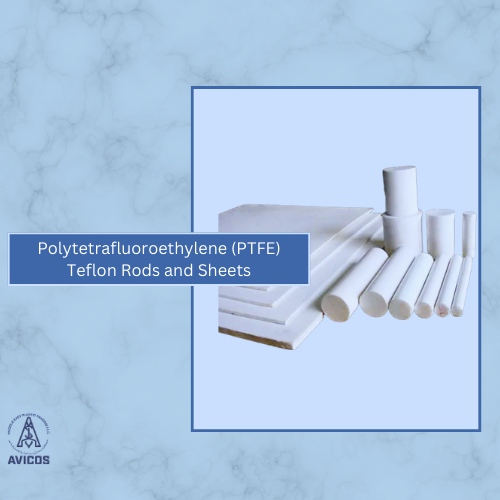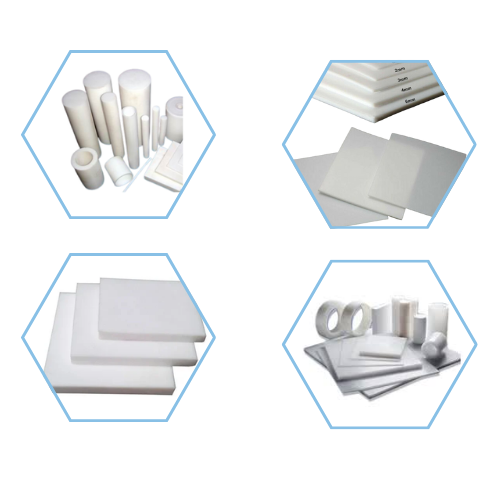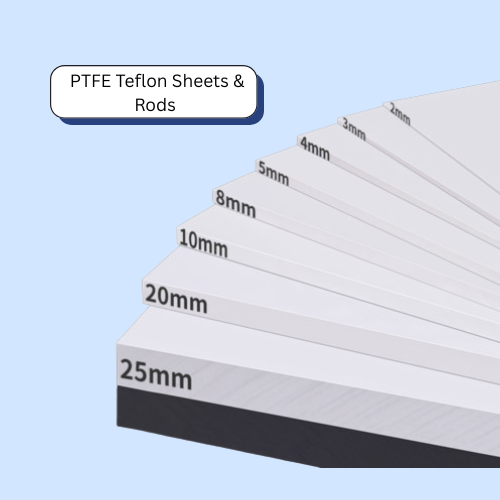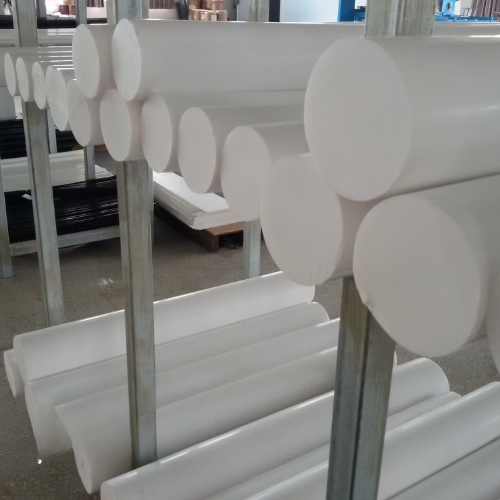What are Polytetrafluoroethylene (PTFE) Teflon Rods and Sheets?
PTFE material is a semi-crystalline fluoropolymer with a structure that features fluorine atoms replacing hydrogen atoms in its carbon backbone. This molecular structure gives PTFE exceptional qualities that set it apart from conventional plastics. As a result, PTFE is preferred for critical applications across oil and gas, food processing, pharmaceuticals, petrochemicals, and water treatment industries in the Middle East.
PTFE, also known as polytetrafluoroethylene and commonly branded as Teflon, is a high-performance engineering plastic used across the Middle East, and parts of the UAE, Dubai, Sharjah, Qatar, and Oman. It is known for its unique combination of chemical resistance, thermal stability, and versatile applications. PTFE sheets, rods, and finished parts are widely sought after in sectors demanding premium plastic solutions.
Features
Here are the features that make PTFE Teflon a common and reliable choice for many applications.
- High Chemical Resistance: PTFE is one of the most chemically resistant plastics. It can withstand acids, alkalis, solvents, and harsh industrial chemicals without breaking down, making it ideal for chemical plants and labs.
- Extreme Temperature Range: Teflon works in a wide temperature range, from -200°C up to 260°C, making it suitable for very cold or very hot environments. This makes it popular among PTFE manufacturers in Oman and coating providers in Qatar, used in the petrochemical and refining industries.
- Low Coefficient of Friction: PTFE has a very smooth surface that reduces friction. This makes it great for sliding parts like bearings and bushings, helping machines run more efficiently and last longer.
- Excellent Electrical Insulation: PTFE has high dielectric strength, so it’s an excellent electrical insulator. It’s widely used in electronics and electrical industries across the Middle East for insulators, gaskets in Qatar, and other sensitive components.
- Non-Stick Surface: The unique non-stick property of PTFE Teflon sheets in Dubai means materials don’t stick to it. This makes cleaning easier, especially in the food and pharmaceutical industries.
- Biocompatibility: Food-grade PTFE in the Middle East is safe for medical use. It’s used in devices like vascular grafts and lab equipment because it doesn’t cause harmful reactions and keeps things hygienic.
Applications
PTFE Teflon is known for its durability and versatility, which finds immense use across many sectors. In the food industry, it meets FDA standards for safe contact surfaces, which makes it perfect for sealing bars and heat-resistant liners that enhance hygiene and efficiency. Its resistance to chemicals makes it a top choice for gaskets, seals, and linings in demanding chemical and petrochemical applications.
Teflon also excels in automotive and aerospace fields, providing lightweight, durable gaskets and rods that improve sealing and reduce vibrations. Additionally, it supports water treatment processes with long-lasting membranes and plays a critical role in electronics through reliable electrical insulation components.
How to Use PTFE?
To get the best results when working with Teflon, follow these important steps.
- Use sharp, carbide-tipped tools and machine at low speeds to get clean cuts.
- Clamp gently to avoid deforming the soft PTFE material.
- Apply coolant during machining to prevent overheating.
- Choose virgin PTFE for chemical resistance; use filled grades for added strength.
- Bond only chemically etched PTFE surfaces, as normal PTFE is hard to glue.
- For food or medical use, select food-grade PTFE and handle it in clean environments.
Safety Guidelines
It is important to follow these safety precautions before using Polytetrafluoroethylene (PTFE) Teflon Rods and sheets.
- Handle Tenflon within its prescribed temperature range to avoid toxic fume release.
- Always operate in a ventilated area during machining or heating processes.
- Wear gloves, safety glasses, and appropriate masks to avoid skin contact, eye injuries, or inhalation of dust and fumes.
- Never incinerate PTFE scrap; dispose of it per local environmental regulations.




